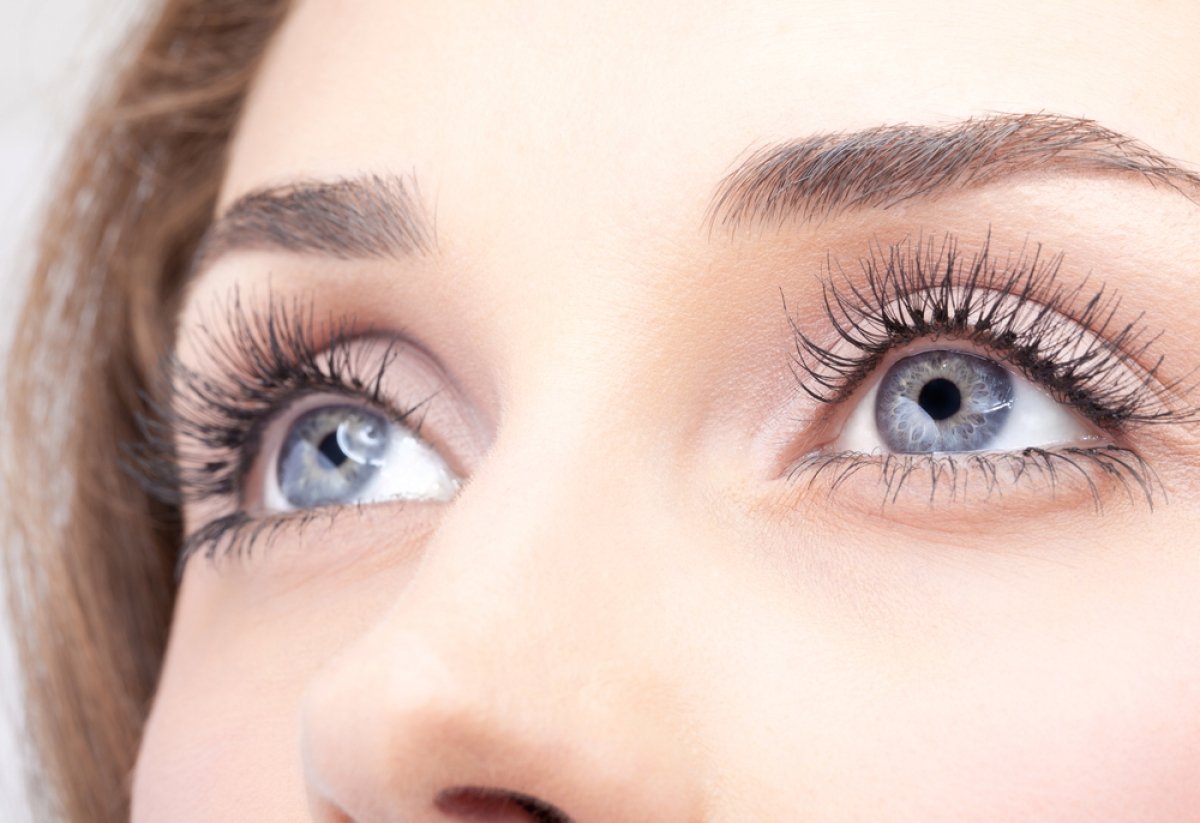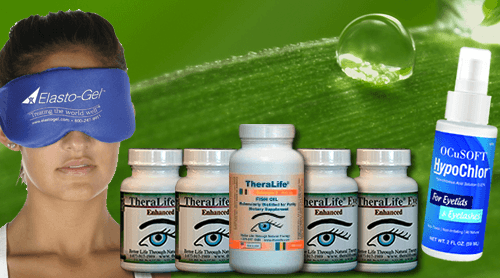To naturally relieve gritty and watery eyes, consider incorporating TheraLife‘s products and insights into your routine. TheraLife offers a range of products specifically designed to manage and alleviate symptoms of eye conditions such as blepharitis, dry eyes, and uveitis. Their products are crafted to support overall eye health by enhancing tear production and reducing inflammation, which is essential for those suffering from chronic dry eyes and eyelid hygiene issues.
TheraLife’s approach includes the use of natural and effective methods that complement lifestyle adjustments. For example, they advocate for the use of warm compresses to enhance meibomian gland function, incorporating a balanced diet enriched with omega-3 fatty acids and antioxidants, and maintaining proper hydration levels. These strategies, combined with TheraLife’s products, help improve eyelid hygiene, manage blepharitis, and support tear production.
Customers benefit from TheraLife’s targeted solutions, which not only soothe uncomfortable symptoms but also focus on chronic dry eyes. By addressing the root causes of eye discomfort and providing comprehensive care, TheraLife empowers its customers to achieve healthier eyes naturally. Explore more about TheraLife’s range of products and their specific benefits to optimize your eye health.
Key Takeaways
Theralife.com offers a variety of products that provide natural relief for gritty and watery eyes, focusing on overall eye health and comfort. Here’s how Theralife’s products can benefit its customers:
- Natural Eye Relief: Theralife’s products are designed to alleviate symptoms of dry eyes, including grittiness and excessive tearing, using natural ingredients. This oral dry eye treatment approach can help reduce inflammation and improve tear production.
- Comprehensive Eye Care: By promoting eyelid hygiene and supporting eye health with omega-3 supplements, Theralife helps control irritation and enhance tear quality.
- Hydration and Nutrition: Theralife encourages the intake of omega-3 fatty acids and staying hydrated, both of which are crucial for maintaining eye moisture and reducing dry eye symptoms.
- Digital Eye Strain Reduction: Theralife recommends practices like the 20-20-20 rule to alleviate digital eye strain, which complements their natural product offerings to provide a holistic approach to eye health.
Theralife’s commitment to natural, effective solutions makes it a valuable resource for individuals seeking to manage and improve their eye conditions naturally.
Causes of Gritty Eyes
Understanding the causes of gritty eyes is essential for effectively addressing this uncomfortable condition. Gritty eyes often originate from dry eye syndrome, a prevalent issue where reduced tear production leads to symptoms of dry eye such as burning and scratchiness.
Aging and environmental factors, including exposure to dry air and allergens, frequently exacerbate this condition. When tear production is insufficient, your eyes can’t maintain the necessary lubrication, intensifying the gritty sensation.
Corneal abrasion is another contributor to gritty eyes. These microscopic scratches on your cornea, often resulting from inadvertent contact with objects like fingernails or makeup brushes, can severely irritate your ocular surface.
Additionally, blepharitis, characterized by inflammation of your eyelids, results in swelling and redness, further contributing to the sensation of grittiness.
Eye allergies, such as allergic conjunctivitis, are significant culprits as well. Exposure to common allergens like pollen or pet dander can trigger allergic reactions, leading to red, swollen eyes that feel gritty.
Ultimately, growths on the conjunctiva, namely pinguecula and pterygium, may cause irritation and contribute to that gritty sensation as they disturb the eye’s surface. Recognizing these causes allows for precise and effective management of gritty eyes.
Symptoms of Watery Eyes
When you experience watery eyes, you may notice excessive tearing due to irritation from allergies or dry eye syndrome.
This condition can affect your vision, causing symptoms like blurred vision and difficulty focusing as tear production becomes inconsistent.
Additionally, environmental triggers such as smoke or dust can exacerbate redness and light sensitivity, further impacting visual comfort and clarity.
Causes of Watery Eyes
In the domain of ocular health, one might encounter watery eyes due to a variety of factors, including environmental irritants like smoke, dust, and allergens that incite the body’s natural reflex to increase tear production. This excessive tear production is a common cause of irritation and discomfort, often accompanied by symptoms such as redness and a gritty sensation in the eyes. Allergens, particularly, can trigger an inflammatory response, leading to these symptoms.
Furthermore, conditions such as allergies, infections like conjunctivitis, and dry eye syndrome greatly contribute to watery eyes. In these cases, the eyes might overproduce tears to compensate for irritation or lack of moisture. Blocked tear ducts can also cause tears to overflow, as they prevent proper drainage.
Prolonged screen use is another notable cause, as it reduces blinking frequency, leading to dryness and, subsequently, increased tear production in an attempt to maintain adequate moisture.
It’s crucial to recognize these causes to effectively manage and mitigate the symptoms associated with watery eyes. Understanding these factors can guide you in seeking appropriate interventions and maintaining ideal ocular health.
Effects on Vision
Watery eyes, often a symptom of underlying ocular conditions, can considerably impact vision by causing blurred vision and difficulty focusing on objects. This excessive tearing isn’t just inconvenient; it can lead to eye discomfort and a gritty sensation, distracting you from visual tasks. The increased sensitivity to light associated with watery eyes may cause squinting, intensifying visual strain. Frequent blinking, a natural response to eye irritation, exacerbates digital eye strain, especially during prolonged screen use. This cycle of discomfort and strain can be taxing on your visual health.
| Symptom | Impact on Vision |
|---|---|
| Blurred Vision | Difficulty in focusing |
| Sensitivity to Light | Increased visual strain |
| Frequent Blinking | Digital eye strain |
Persistent watery eyes might signal underlying conditions, such as allergies or infections. If left untreated, these can affect your overall visual health. It’s essential to address these symptoms promptly. You might find relief from dry, watery eyes using home remedies, but understanding the root cause is critical. By managing the symptoms and identifying any underlying conditions, you can maintain visual clarity and comfort. Regular eye check-ups and adopting strategies to relieve dry eyes are important steps in ensuring long-term ocular health.
Warm Compress Techniques
You can effectively relieve gritty and watery eyes by using warm compresses, which enhance the function of oil glands in your eyelids.
Applying a clean washcloth soaked in warm water for at least one minute against your closed eyelids can greatly reduce inflammation and discomfort.
For best results, incorporate this technique into your daily routine, especially if you experience chronic symptoms such as blepharitis or dry eye syndrome.
Benefits of Warm Compresses
A warm compress‘s soothing touch can substantially alleviate eye discomfort by addressing inflammation and enhancing oil gland function, essential for maintaining ideal tear quality. By using warm compresses, you can effectively reduce eye irritation, a common symptom in conditions like dry eye syndrome.
The heat stimulates the meibomian glands, responsible for oil production on the eyelids. This stimulation helps to unclog oils, improving the gland’s ability to secrete the oils necessary to maintain eye moisture and prevent tear evaporation. Consistently applying warm compresses enhances tear quality and helps soothe discomfort associated with dry eye syndrome.
The benefits of warm compresses extend beyond immediate relief. Regular use can considerably reduce symptoms related to blepharitis and other eye conditions.
When meibomian glands function at their best, you’re less likely to experience the gritty or watery sensation that often accompanies blocked oil glands. This simple yet effective technique is invaluable for those seeking natural relief from persistent eye issues.
Proper Application Methods
To effectively apply a warm compress, start by wetting a clean washcloth with water that’s warm yet comfortable to the touch. Once the washcloth is ready, gently press it against your closed eyelids. This contact should last for at least one minute. This duration is critical in helping to loosen clogged oils and ease any irritation you’re experiencing.
When using these application methods, focus on:
- The edges of your eyelids to promote oil gland function and reduce inflammation.
- Maintaining a consistent temperature by rewetting the cloth as needed.
- Incorporating the compress into your daily eye care routine for ongoing eye health benefits.
For ideal relief, reapply the warm compress multiple times, taking short breaks of a few seconds between applications. This guarantees your eyes aren’t exposed to excessive heat, which can be counterproductive.
By making this a regular part of your eye care routine, you support overall eye health, enhancing comfort and reducing symptoms of gritty and watery eyes. Consistent use can markedly improve the function of oil glands, thereby minimizing inflammation and maximizing relief.
This technique represents a simple yet effective method for maintaining your eye health.
Diet for Eye Health
Diet plays a pivotal role in maintaining eye health and alleviating the discomfort associated with gritty and watery eyes. Consuming oily fish like salmon, tuna, and sardines, rich in omega-3 fatty acids, can enhance oil gland function and reduce dry eye symptoms. These essential fatty acids are essential for tear production and help keep your eyes hydrated.
Incorporating a variety of fruits and vegetables, which are high in antioxidants, supports overall eye health and may alleviate irritation linked to gritty eyes. Nuts and seeds further contribute essential fatty acids necessary for maintaining tear production and eye lubrication.
Staying hydrated is important, so aim to drink at least 8-10 glasses of water daily. Adequate hydration maintains moisture levels in the eyes, reducing symptoms of dryness. Foods rich in vitamins A, B12, and D, such as carrots, eggs, and fortified cereals, also contribute greatly to eye health, potentially reducing gritty sensations.
Here’s a quick guide:
| Nutrient Source | Benefit |
|---|---|
| Omega-3 Fatty Acids | Enhance oil gland function |
| Fruits and Vegetables | Support overall eye health |
| Vitamins A, B12, D | Reduce gritty sensations |
Eyelid Hygiene Practices
While nourishing your eyes from within is fundamental, maintaining external cleanliness through proper eyelid hygiene practices is equally vital.
Regular eyelid hygiene, including cleaning your eyelids and lashes, is essential for controlling inflammation and preventing blepharitis, a condition that can lead to gritty and watery eyes. Keeping your eyelids clean guarantees that your oil glands remain unclogged, supporting peak tear production and overall eye health.
To effectively cleanse your eyelids, use a diluted baby shampoo or mild soap. Gently massage this solution near the base of your eyelashes to remove debris and crusting, which can otherwise cause irritation. This practice is especially recommended for individuals who wear makeup or experience chronic dry eye symptoms.
Here are key steps to incorporate into your daily routine:
- Eyelid Cleaning: Use diluted baby shampoo and warm water to gently clean your eyelids and lashes.
- Daily Routine: Make it a habit to cleanse your eyelids every day to prevent irritation and discomfort.
- Professional Consultation: Consult an eye care professional if you experience persistent crusting or irritation, as specialized eyelid care may be necessary.
Screen Time Management
In today’s digital age, you’re often engaged with screens for extended periods, which can frequently lead to reduced blinking rates and subsequent eye discomfort. The average blinking rate diminishes from 12 to just 5 times per minute during prolonged screen time, exacerbating dry eyes and irritation.
To mitigate these effects, implementing the 20-20-20 rule is essential. This approach involves looking at an object 20 feet away for 20 seconds every 20 minutes, greatly reducing digital eye strain and enhancing eye comfort.
Frequent breaks are important, not just for reducing eye strain but also for encouraging blinking habits that promote moisture retention and prevent dryness. Positioning your computer screen below eye level can effectively reduce tear evaporation by minimizing eye opening, thereby maintaining ocular moisture.
Awareness of your blinking habits during screen use is critical; frequent blinking aids in lubricating the eye surface.
In instances where dry eyes persist, lubricating eye drops can be beneficial. These drops help in maintaining moisture and alleviating discomfort.
Hydration and Eye Comfort
Proper hydration is essential for maintaining eye comfort and preventing dryness. Since water constitutes 98% of tears, drinking enough water is critical to ensuring adequate tear production and eye moisture. Adults should aim for 6-8 glasses of water daily to prevent symptoms of dry eyes.
Dehydration can lead to reduced tear volume, causing uncomfortable sensations like grittiness and irritation. Therefore, maintaining hydration levels is imperative for alleviating these symptoms.
Incorporating water-rich foods into your diet can further enhance hydration and support eye health. Foods such as:
- Cucumbers
- Watermelon
- Celery
help maintain moisture levels and contribute to ideal eye comfort. These foods aren’t only invigorating but also beneficial in increasing overall fluid intake.
Monitoring your hydration status is important. A straightforward way to do this is by observing the color of your urine; lighter colors typically indicate better hydration.
Additionally, limiting your intake of caffeine and alcohol can prevent further dehydration, thereby supporting consistent tear production and eye comfort. By focusing on hydration, you can effectively manage and alleviate the symptoms of dry eyes, ensuring your eyes remain healthy and comfortable.
Frequently Asked Questions
What Vitamin Deficiency Causes Gritty Eyes?
You might experience gritty eyes due to deficiencies in vitamin A, vitamin B12, or vitamin D.
These vitamins are essential for maintaining eye health. Omega-3 fatty acids also play a significant role, and their lack can reduce tear production.
Zinc levels and magnesium deficiency can further impact your eyes.
Prioritize hydration and incorporate dietary sources rich in these nutrients, like fish, leafy greens, and nuts, to support ideal eye health.
Why Do My Eyes Water and Feel Gritty?
Your eyes might seem to be staging a dramatic performance — complete with gritty sandpaper and a tear-fest — due to dry eye syndrome, environmental factors, or allergy triggers.
Eyelid hygiene becomes essential as inflammation response kicks in. Prolonged screen time exacerbates eye strain, and contact lenses can also be culprits.
Sleep quality affects tear production, leaving your eyes thirstier than a desert, yearning for relief amidst the chaos.
What Is the Best Natural Lubricant for Eyes?
When you’re seeking the best natural lubricant for your eyes, consider using natural eye drops containing omega-3 fatty acids, sodium hyaluronate, or flaxseed oil for enhanced tear quality.
Aloe vera gel can soothe when applied cautiously. Coconut oil and chamomile tea offer hydration and comfort.
Warm compresses enhance circulation, while cucumber slices cool and relieve irritation.
Herbal remedies like honey and water-rich foods guarantee hydration, supporting natural lubrication effectively.
How Do You Get Rid of Watery Eyes Asap?
To quickly address watery eyes, focus on allergy relief by using antihistamine eye drops.
Apply a cold compress for immediate soothing, or try warm compresses to unblock oil glands.
Herbal remedies like chamomile may offer natural relief.
Stay hydrated with water and consider omega fatty acids for eye health.
Practice blinking exercises and maintain eye hygiene to reduce irritation.
Stress reduction techniques can also help manage symptoms effectively.
Conclusion
Imagine your eyes as tranquil pools, no longer gritty or overflowing with tears. TheraLife’s products offer a natural and effective way to relieve these symptoms, promoting eye health and comfort. By incorporating their specialized formulas, you are soothing irritated surfaces, similar to a gentle sunrise warming a dewy morning. TheraLife’s approach includes nourishing your vision with essential nutrients, maintaining eyelid hygiene, and managing contributing factors like screen time and hydration. This comprehensive eye care solution helps ensure your eyes radiate comfort and clarity, reflecting your dedication to their well-being.




